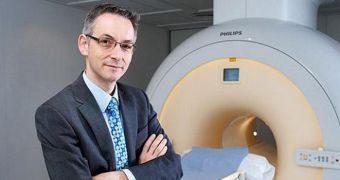According to researchers at the University of Leeds, it would appear that Magnetic Resonance Imaging (MRI) is the best-possible medical image technique to use when investigating heart conditions. The approach works better than any other available imaging methods, especially for coronary heart disease.
When it comes to identifying people who are in the early stages of developing CHD, absolutely nothing beats MRI in detecting the very first signs of disease. This was discovered following a major study of heart disease patients in the United Kingdom.
This study could be put to good use, the team says, since doctors could recommend an MRI to people who are suspected of developing a heart disease. Applying this approach – though more expensive – could lead to better diagnostics, and a lot of money saved for the healthcare system in the long run.
Another benefit is that MRI is not invasive and does not use harmful ionizing radiation. While it's not recommended to get 100 MRIs in a single year, you can take several without any danger to your health.
Details of the new investigation were published in the December 23 issue of the esteemed medical journal The Lancet. Researchers were funded by a £1.3 ($2.04) million grant from the British Heart Foundation (BHF).
“We have shown convincingly that of the options available to doctors in diagnosing coronary heart disease, MRI is better than the more commonly-used SPECT imaging test,” explains University of Leeds professor Dr. John Greenwood.
“As well as being more accurate, it has the advantage of not using any ionizing radiation, sparing patients and health professionals from unnecessary exposure,” adds the expert, who was also the lead author of the study.
He argues that the MRI heart investigation technique could be used internationally, not just in the UK. Every hospital with a 1.5-Tesla scanner (or better) can perform this type of analysis. This is “exactly the type of MRI scanner that you would find in most hospitals today,” Greenwood says.
At the same time, discovering CHD before it takes a good hold on the heart could avoid a £9 billion ($14.1) annual hole in the National Health Services' (NHS) budget alone. About 2.6 million people are living with CHD in the UK alone.

 14 DAY TRIAL //
14 DAY TRIAL //